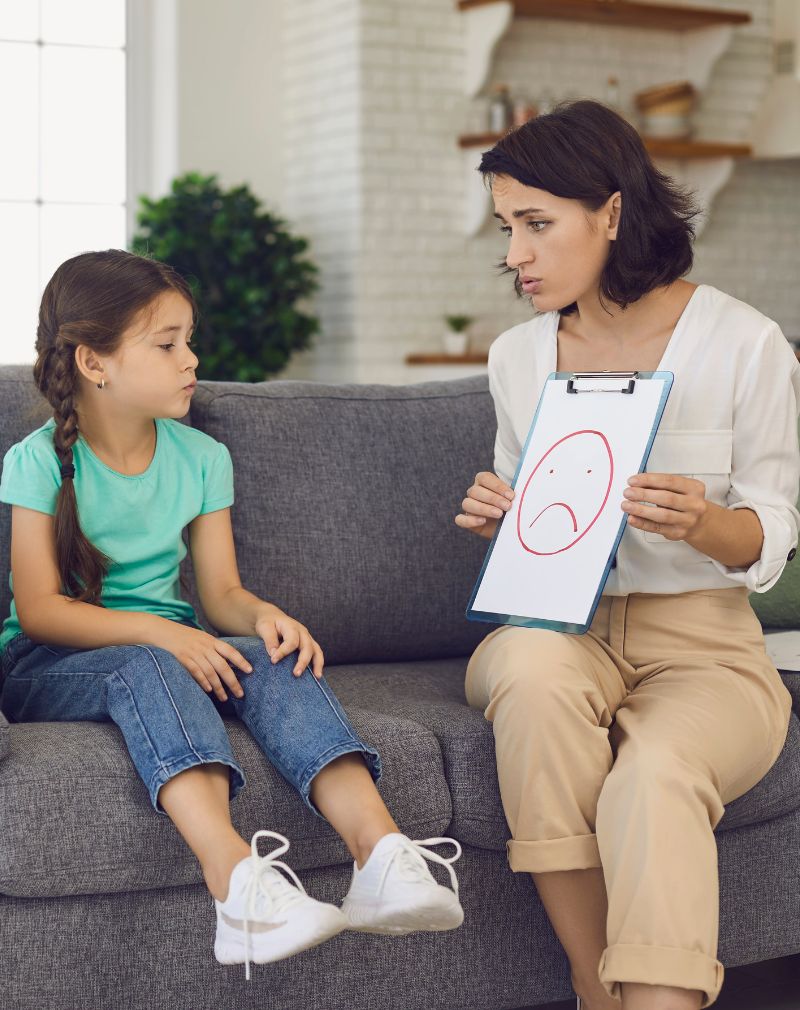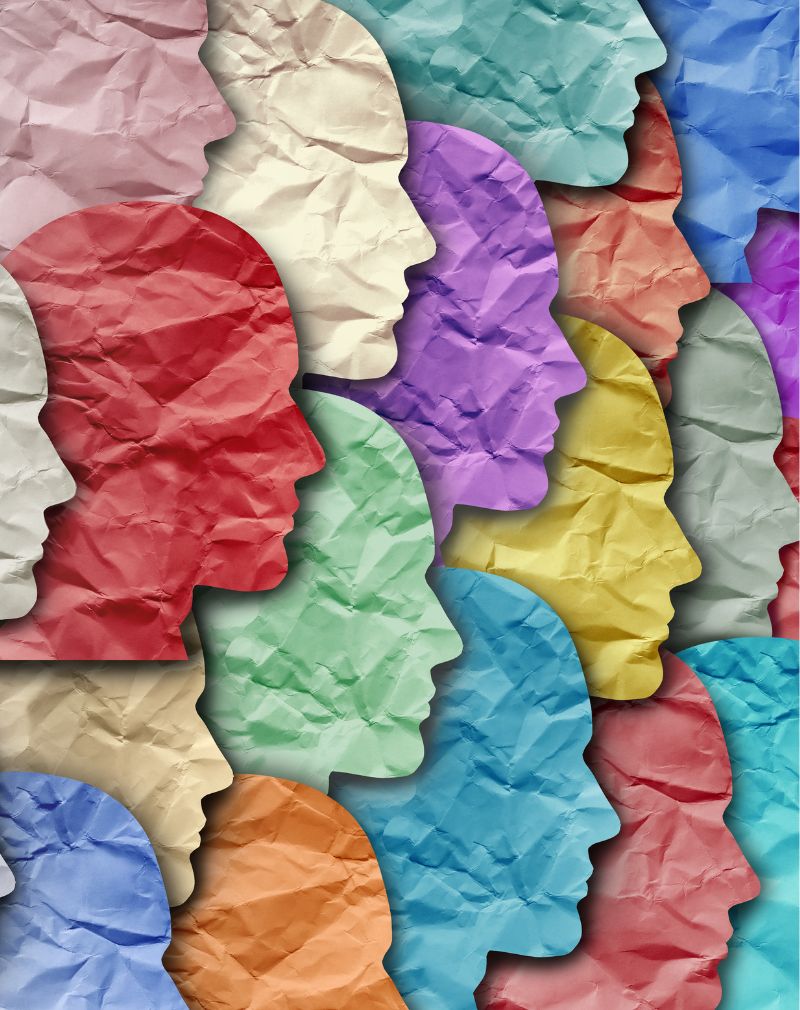Attention Deficit Hyperactivity Disorder (ADHD) is a common neurodevelopmental condition that affects a child’s ability to focus, control impulses, and regulate activity levels. Children with ADHD often face challenges in various areas of their lives. They may struggle in school, experience difficulties in forming and maintaining friendships, and have a harder time developing positive self-esteem.
To effectively support a child with ADHD, it’s crucial to gain a deeper understanding of their unique experience. Specialists in child psychology at the American Wellness Center in Dubai Healthcare City recognize that ADHD can make a child feel overwhelmed, frustrated, and misunderstood. Understanding how ADHD impacts their thoughts, feelings, and behavior is the first step towards offering effective support and creating a more nurturing environment for them to thrive.
Inside Your Child’s ADHD Brain
Picture a bustling, vibrant city filled with endless possibilities. Imagine a mind that mirrors this constant motion – ideas flashing by, energy bursting at the seams, and a relentless desire for stimulation. This is a glimpse into the world of a child with ADHD. While it can be exciting and full of potential, it also comes with unique challenges.
- A Flood of Feelings: Children with ADHD often experience intense emotions that can shift rapidly. Frustration may arise when tasks feel insurmountable or instructions seem too complex. Feeling misunderstood is common, as their inner world seems out-of-sync with the pace and expectations of those around them. The struggle to manage their boundless energy and impulses can lead to a sense of internal chaos and feeling different from their peers.
- Misunderstood and Mislabeled: A child with ADHD may be labeled as ‘lazy’, ‘disruptive’, or ‘difficult’ when their behaviors stem from their unique brain wiring. This misunderstanding can be deeply discouraging, making them feel as if something is wrong with them, undermining their confidence and sense of self.
- The Deepest Desire: Acceptance and Support At the heart of it all, children with ADHD crave the same things as their peers: to be accepted, understood, and supported. They yearn for parents, teachers, and friends who see beyond the whirlwind of activity to recognize their potential, their kind hearts, and their unique way of seeing the world.
Understanding is the Key By taking the time to understand the experience of a child with ADHD, we open doors to providing the specific support they need to overcome their challenges and thrive.
Strategies for Supporting Your Child with ADHD
Understanding your child’s ADHD experience is the first step; the next is providing the right kind of support. This journey may involve trial and error, but these key strategies can help:
- Patience and Empathy: The Path to Connection Children with ADHD need parents who are patient and understanding. Meet their frustration with compassion, not judgment. Focus on building a strong, trusting relationship where your child feels safe to express their struggles and knows they have your unconditional support.
- Structure and Predictability: Creating Calm Amidst the Chaos Routines provide a sense of security for a child with ADHD. Establish clear expectations for homework, chores, and bedtime. Break down larger tasks into manageable steps, and use visual aids like charts or checklists to provide guidance.
- Celebrate Strengths: Nurturing Confidence Look beyond the challenges and actively identify your child’s strengths and passions. Are they a creative thinker? A natural athlete? Encourage their talents and praise their efforts. Building a strong sense of self-esteem is crucial for children with ADHD.
- A Partnership with School: Ensuring Academic Success Open communication with your child’s teachers is vital. Collaborate to create a supportive learning environment tailored to their needs. This could include extra time on tests, preferential seating, or breaking down assignments into smaller steps.
- Therapies and Holistic Support: The Power of Professional Guidance Specialized therapies, such as cognitive-behavioral therapy (CBT), can teach children with ADHD valuable skills for managing their emotions, improving focus, and overcoming challenges. Therapists at the American Wellness Center in Dubai Healthcare City provide individual and family support, helping you and your child navigate the complexities of ADHD. Consider exploring holistic approaches alongside traditional therapies, such as mindfulness, nutritional support, and exercise.
You are not alone in this journey. Seeking the expertise and guidance of professionals at American Wellness Centre in Dubai Healthcare City can empower both you and your child to navigate ADHD successfully.
In a recent community talk hosted by the Dubai Healthcare City Mental Wellbeing Community, Dr. Cynthia Roukoz, a Clinical Psychologist and Neuropsychologist at the American Wellness Center, led a powerful discussion titled “My ADHD Brain: What I Wish My Parents Knew.” This insightful session explored the world of ADHD from a child’s perspective, offering parents a deeper understanding of their child’s experiences. Dr. Roukoz shared practical tips for creating a supportive home environment, demystified common misconceptions, and highlighted effective coping mechanisms for children with ADHD.
When to Seek Professional Help
While every child experiences ups and downs, there are times when the challenges associated with ADHD go beyond typical growing pains. If you observe the following signs, it’s important to seek professional help:
- Significant Struggles at School: If your child is consistently falling behind academically, despite your efforts and accommodations, a professional assessment can pinpoint the underlying cause. ADHD might be one factor, or there could be undiagnosed learning difficulties.
- Difficulties with Social Interaction: Children with ADHD might struggle to read social cues, interrupt conversations, or have a hard time making and keeping friends. A therapist can help them develop social skills and navigate friendships more effectively.
- Emotional Distress: If your child experiences frequent meltdowns, overwhelming anxiety, or seems consistently unhappy, these are signs of emotional strain. Professional support can help them understand and manage their emotions.
- Disruptive Behaviors Affecting Daily Life: If your child’s impulsive behavior or hyperactivity significantly impacts their daily functioning or home life, a professional evaluation can help determine if ADHD is a factor and explore treatment options.
Seeking Help is a Sign of Strength
Reaching out for professional support is not a sign of failure; it’s a testament to your love and commitment to your child’s well-being. Don’t hesitate to consult with the specialists at the American Wellness Center in Dubai Healthcare City. Therapists with expertise in ADHD can conduct a thorough assessment, offer a diagnosis if needed, and create a personalized treatment plan to help your child reach their full potential.
Raising a child with ADHD has its unique rewards and challenges. By embracing a deeper understanding of their experience, providing consistent support, and advocating for their needs, you can pave the way for them to thrive. Remember, patience, empathy, and a focus on your child’s strengths are powerful tools in this journey.
To parents navigating this path, know that you are not alone. Challenges may arise, but with the right support system and strategies in place, your child can overcome obstacles and embrace their unique gifts. The American Wellness Center in Dubai Healthcare City is here to guide you, offering resources, therapies, and a compassionate community dedicated to helping children with ADHD reach their full potential.



